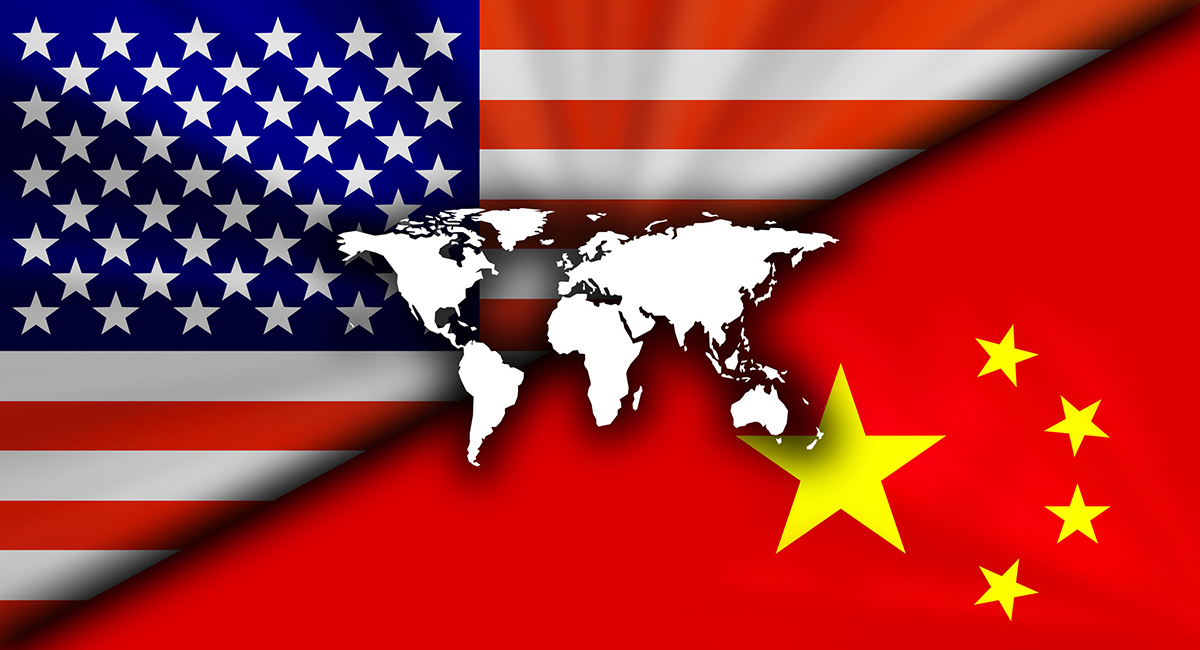With a straight face, President Biden and his aides claimed that the recent U.S.-Japan-South Korea summit agreement was not directed against China or any other country. According to the president, “This summit was not about China. This was not the purpose.” But he also acknowledged, “But obviously China came up.”
Despite this lame excuse, everyone worldwide, including the Chinese, knew the three-way agreement was about China. And it is only one piece of a tightening U.S. containment policy against the rising nation.
The three-way summit was only a modest advancement over the existing bilateral U.S. defense relationships with Japan and South Korea—the news being that longtime rivals Japan and South Korea agreed to enhanced tri-corner military cooperation. The agreement expanded joint military exercises, enhanced cooperation on ballistic missiles, and established a three-participant hotline for crisis communications.
Although not as strong as NATO’s “an attack on one member is an attack on all” security guarantee, the pact’s signatories agreed to coordinate their responses to threats and provocations.
Prior tightening of the three nations’ security relationship already has caused a reaction from China. China has held joint exercises with Russia near Japan and Alaska, put increased military pressure on Taiwan, especially doing military drills on the island’s Pacific side to demonstrate it could impose a quarantine, and engaged in greater provocative behavior in the South China Sea.
Yet, the tightening of the three-way arrangement is only one piece of the decades-long U.S. containment project in East Asia. In recent years, the United States has similarly enhanced other regional anti-China security arrangements—even creating new ones. The United States also signed a three-way security agreement with Britain and Australia, which included pledging to help Australia obtain powerful U.S. nuclear-powered submarines.
In addition, the Philippines agreed to again allow an increased American military presence there. Finally, the United States is strengthening the anti-China Quad group of the U.S., India, Japan and Australia. The United States has formal alliances with Japan, South Korea, Australia, New Zealand, the Philippines and Thailand and an informal alliance with Taiwan. (Three times, Biden has verbally committed to defending Taiwan if attacked by China, which each time has been walked back by his aides.)
Finally, the United States has informal security arrangements with other nations in East Asia, such as Singapore and even communist Vietnam.
So it is laughable for U.S. officials to deny that they are, in fact, trying to encircle and contain a rising China with formal and informal security arrangements. Even more rigorous denials from American diplomats and military officials occur when reporters ask if a new Cold War with China is at hand. Although the United States and China are more dependent on each other economically than were the United States and the Soviet Union during the last Cold War, the American bipartisan anti-China hysteria is beginning to resemble that last four-decade freeze in superpower relations.
The United States has imposed added controls on technologies that could be used for commercial or military use (dual-use technologies), especially on electronic chips. Also, the Biden administration has restricted some U.S. investment in China.
Ridiculous talk has arisen about banning the Chinese dance app TikTok and China’s investment in American farmland. Restrictions and prohibitions in states are beginning to go beyond those the federal government imposes. (This hysteria mirrors the scare of Japanese investment in U.S. farmland during the 1980s.) It seems curious that very little concern is exhibited by the public about the vast British investment, in land and otherwise, in the country. Is Chinese investment in rich Iowa farmland really that scary to national security?
American policymakers and the public rarely exhibit any introspection about assertive U.S. policies overseas having undesirable ramifications for the United States. How would the United States like China to form military alliances with Canada, Mexico, the Caribbean, and Central and South American countries? There is a two-word answer to that question: Monroe Doctrine.
The U.S. government has dominated the world since World War II but can no longer afford to do so. It should instead make an accommodation to let China rise as a great power, as Britain successfully did with the rising United States in the 1800s. Then, a vast ocean separates the two nations, enhancing the natural security of both and making war less likely, especially with the rich economic relations between China and the United States.

















